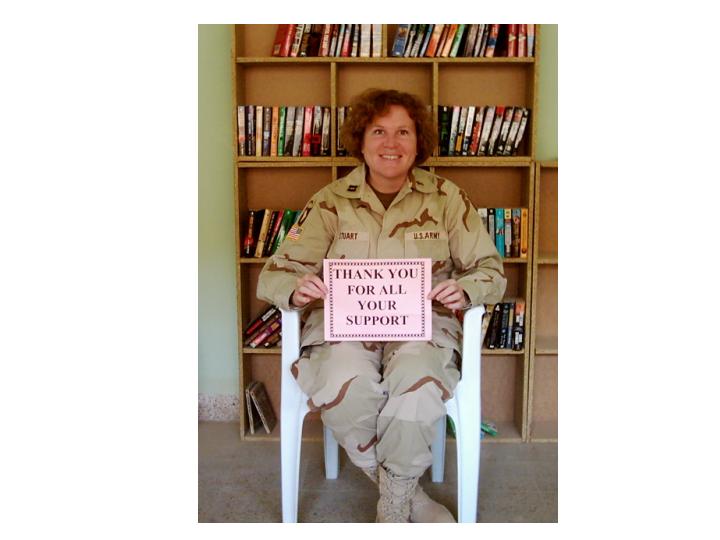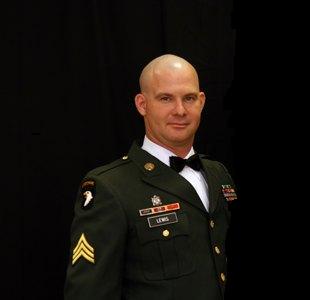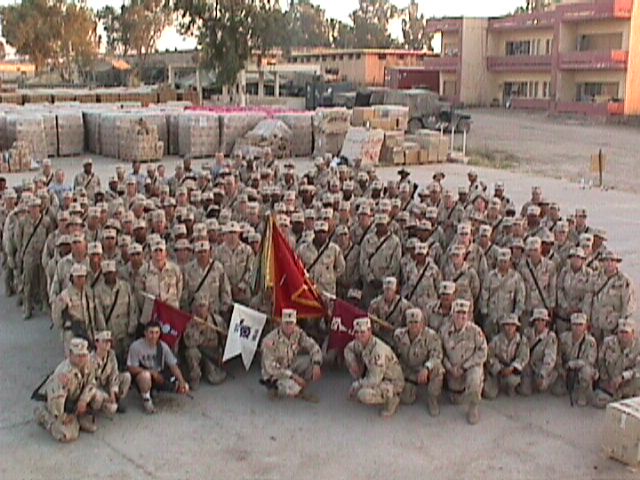
In 2003 General Petraeus led the troops into the massive battle of "shock and awe" in Operation Iraqi Freedom. The 101st Airborne was the first to pave the way in what would become a six-year war. My sister, Army Chaplain Captain Fran E. Stuart, deployed with the 101st that cold day in March of 2003, as did her battalion mate, Army Sgt. Charles Lewis -- both with the 526 Forward Support Battalion.
During their year deployment into Baghdad then Mosul, they, as well as the other 247 soldiers in the 526 FSB, withstood the storm of munitions, pulsating heat, and swirls of sand kicked up by the unforgiving Gods of this sacred and holy land.

My sister, Army Chaplain Captain Fran E. Stuart
Their life wouldn't be the same after that one year deployment. My sister would find herself being medevaced to Walter Reed in March 2006 with a rare stage IV germ cell cancer, dysgerminoma. The volleyball-sized tumor in her abdomen attempting to consume her body would eventually take 50 pounds, her creative organs, ovaries and faith in God.
After 35 rounds of chemo and three surgeries, she leaves WRAMC this month, celebrating three years of remission, for a new life retired from the Army. She is reconciling with her body and her maker -- but she may never forgive her once beloved military for knowingly exposing her to carcinogens while in Iraq through depleted uranium dust, burn pit smoke and contaminated food and water. The latter dished up everyday by Cheney's company, the military contractor in charge of the soldiers' sustenance, KBR.

Sgt. Charles Lewis (pictured above) would be diagnosed with semanoma testicular cancer in 2005. He too has recovered, but is unable to give his wife the children she longs for as they battle infertility and the consequences of several tours. Another soldier from the FSB 526 was diagnosed with ovarian cancer shortly after her tour ended. But how many more are there in the 526 alone that we don't know about?

FSB 526 in Mosul
Since 2006 I've brought these tragic yet personal stories to the forefront, hoping for some resolution. Without effort, I've tracked 35 soldiers thus far who have been diagnosed with rare cancers during their deployment or post deployment at OPERATION PURPLE HEART -- 18 of the soldiers have already died. Cancer does not discriminate; afflicted soldiers span all ranks, ages, and military divisions. The common denominator: they served in Iraq from 2003 till 2008.
Adding to the roster of soldiers with cancer post Iraq is their Commanding General David Petraeus, who was diagnosed with prostrate cancer in February 2009. He underwent radiation treatment at WRAMC and was successful. But many other soldiers, ignored by the media and DoD, are not on the side of this four leaf clover.
"IRAQI CANCER FIGURES SOAR" October 13, 2009Al Jazeera News
Doctors in Iraq are recording a sharp rise in the number of cancer victims south of Baghdad. Sufferers in the province of Babil have risen almost tenfold in just three years, Dr. Sharif Al-Alwachi, Director of Babil Cancer Centre stated.
In 2008, the number of cases increased sevenfold to 7,000 diagnoses. This year, there have so far been more than 9,000 new cases, and the number is rising.
Christopher Busby, a British scientist and activist who has carried out research into the risks of radioactive pollution, said there is proof of a definitive link between cancer and depleted uranium.
"I made this link to a coroner's inquest in the West Midlands into the death of a Gulf War One veteran ... and a coroner's jury accepted my evidence," he told Al Jazeera. "It's been found by a coroner's court that cancer was caused by an exposure to depleted uranium.
"In the last ten years, research has emerged that has made it quite clear that uranium is one of the most dangerous substances known to man, certainly in the form that it takes when used in these wars."